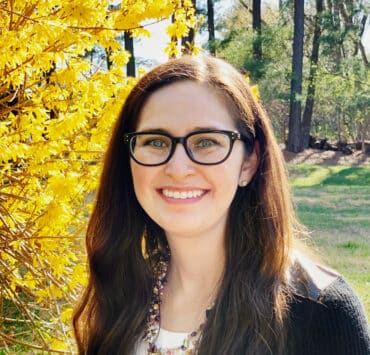|
Getting your Trinity Audio player ready...
|
What does it mean to belong at work? How do legal leaders empower employees at all levels of an organization to feel comfortable contributing their perspectives?
On May 6, seven legal leaders discussed these questions and more at Modern Counsel’s inaugural event, the Empowered Summit, during three panel discussions: “Understanding Intersectionality as a Leader,” “Walking the Walk on DEI,” and “Paying it Forward: Going Beyond Mentorship to Sponsorship.”
Here are some of the key takeaways from their discussions.
Intersectionality in the Workplace
Meta Financial Group Chief Legal and Compliance Officer and Corporate Secretary Anthony Sharett reflected on what diversity, equity, and inclusion (DEI) used to mean in the corporate world—namely, he says, it was “about being color blind and not seeing color in the workplace.” He notes that social injustice and civil unrest have elevated these conversations to include intersectionality, which is about celebrating differences and understanding that they make for a better workplace.
“But conversely, also understanding that, whether it’s microaggressions [or] implicit bias, intersectionality is really ‘double-clicking’ all of the things that at times can make the work environment difficult for some,” Sharett says.
For Altria Client Services Senior Assistant General Counsel and Managing Director Valyncia Saunders, intersectionality is about the confluence of the various aspects of one person coming together.
“I think a lot of times people make assumptions based on outward appearance about how you should interact, what your background is or may or may not be, and that’s important to think about as we go on reading in this space and begin actively being leaders in our companies on these various issues,” Saunders says.
What Has Worked
Cummins Vice President and Deputy General Counsel for Global Employment and Labor Relations John Gaidoo shared a variety of tactics that have worked at his organization in terms of intersectionality and DEI. For one, the company started a hiring committee, staffed by diverse attorneys, that handles every hire. His company also encourages people, especially those in leadership positions, to seek people out to coach and mentor them.
“Don’t wait around for a formal program to come along,” Gaidoo says. “This is something that as a leader you should be doing proactively and consistently.”
Holding Outside Counsel Accountable
These legal eagles agree: When focusing on DEI efforts, in-house counsel has a responsibility to hold outside counsel accountable. Western Digital Vice President and Deputy General Counsel for Contracts, Products, and IP Cynthia Tregillis notes that, when focusing on DEI efforts, in-house counsel at Western Digital makes an effort to communicate often with outside counsel and ensure it understands that her company wants to see diverse slates when there are cases.
“Sometimes it can be awkward for in-house counsel to raise the question or ask the question if we’re not seeing diversity in outside counsel, or if somehow we were seeing somebody who was diverse on earlier matters, and now we’re not seeing those people anymore . . .” Tregillis says. “And it does help to hold the outside counsel accountable.”
D&I Starts with the Individual
AIG Vice President and Deputy General Counsel Manda Ghaferi notes that when it comes to today’s workplace diversity and inclusion efforts, the most important thing to realize is that these efforts begin with the individual. She also recommends that professionals surround themselves with people who are diverse positive.
“Every individual should feel they own D&I for themselves, for their team, and for their organization,” Ghaferi says. “Don’t discount the example you set, the small daily actions you can take to shape a company’s culture to one of inclusion and acceptance. It’s important to remember that does include not just diversity of workforce but also diversity in thought. Create an environment where anyone is allowed to share an idea or what’s on their mind.”
As someone who works with many middle market and large companies, Empowered Founder and CEO Trisha Daho notes that one of the biggest mistakes firms make is not really defining what diversity means for their own people. It’s important to make sure values are aligned.
“What we try to do with companies is help them to find out for themselves if they’ve been communicating well to their own employees, because that makes the diversity efforts go way better,” Daho says.
Mentorship vs. Sponsorship vs. Allyship
NFM Lending General Counsel LaTasha Rowe, who was featured on Modern Counsel’s Issue 2, 2021 cover, notes that mentors, sponsors, and allies are all necessary in order to have a successful career. A mentor, she explains, is someone who could be a peer, someone who gives advice, and who you can bounce ideas off, whereas a sponsor is more of an advocate who’s willing to go to bat for you. As for an ally, that’s someone with whom one can have “a tremendous amount of trust” and provides honest feedback, she says.
Quoting her father, Rowe also notes that it’s important to “lift while you climb.” She urges legal leaders to identify and nurture the individuals who will sit in their seats one day.
“I would really recommend that as you are continuing to navigate through your career . . . [look] around for that person who can potentially be in your space, in your role, and start to give that person the tools to help them to achieve those metrics,” she says.


